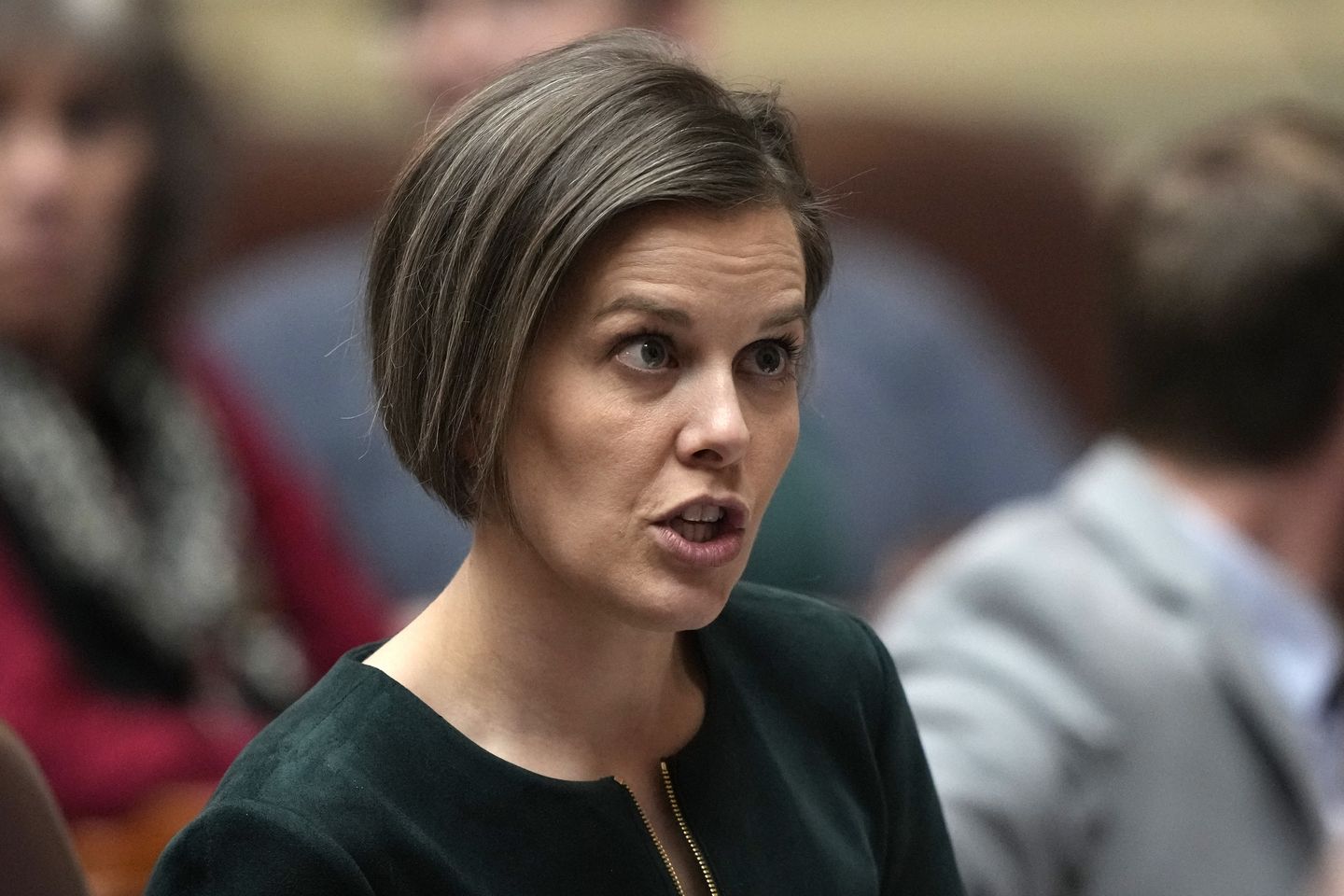In a significant development, a legislator from the state of Maine has initiated legal proceedings at the federal level, accusing the Democrat-led state legislature of infringing upon her First Amendment rights. The charge comes in the wake of her censure over a social media post concerning a transgender high-school athlete.
The lawsuit, filed by the legislator, underscores the increasing polarization and discord in American political discourse, especially when it comes to issues surrounding free speech and transgender rights. At the heart of the controversy is a social media post made by the legislator, which some have interpreted as transphobic, leading to her censure by the state legislature.
The legislator alleges that her censure by the Democrat-controlled legislature is a breach of her First Amendment rights, which guarantee freedom of speech. The First Amendment to the United States Constitution prohibits the government from making laws that infrive upon the freedom of speech, the freedom of the press, and the right to peaceably assemble or petition the government for a redress of grievances. It is a cornerstone of the United States’ democratic principles, and any perceived violation of these rights can stir up significant controversy.
In this context, it is worth noting that the legislator’s case is not an isolated incident. There has been a rising trend of lawsuits and legislative battles across the country over free speech rights, especially as they pertain to discussions surrounding transgender rights and issues. This lawsuit is emblematic of these wider societal debates and reflects the high stakes involved in navigating the balance between free speech rights and the rights of transgender individuals.
The legislator’s censure followed a social media post she made about a transgender high-school athlete. The details of the post have not been publicly disclosed, but it sparked significant backlash, leading to her censure by the state legislature. The censure, a formal statement of disapproval, was issued by the Democrat-controlled legislature, which holds a majority of seats in the state.
In her federal lawsuit, the legislator contends that her censure is a violation of her First Amendment rights, arguing that her social media post is a form of speech protected under the Constitution. She asserts that the legislature’s actions amount to governmental censorship, infringing upon her right to express her views.
The lawsuit also raises broader questions about the limits of free speech, particularly in the context of social media. As the digital realm increasingly becomes a primary platform for public discourse, the boundaries of acceptable speech are continually tested and redefined. This lawsuit challenges the extent to which elected officials, as public figures, can express their views on contentious issues without facing professional repercussions.
Moreover, the case highlights the ongoing tensions between free speech rights and efforts to combat hate speech and discrimination, particularly against transgender individuals. Advocates for transgender rights argue that speech that misgenders or demeans transgender people can perpetuate harmful stereotypes and contribute to a climate of hostility. On the other hand, proponents of free speech rights contend that such restrictions amount to censorship and infringe upon individuals’ rights to express their views, however unpopular or controversial they may be.
The lawsuit comes at a time when the nation is grappling with its understanding and acceptance of transgender rights. At the heart of this struggle is the question of how to balance the right to free speech with the need to ensure respect and dignity for transgender individuals. As the case unfolds, it is likely to contribute to the evolving conversation about the intersection of free speech and transgender rights in the United States.
In conclusion, the federal lawsuit filed by the Maine legislator promises to add a new chapter to the ongoing national debate over free speech and transgender rights. Regardless of the outcome, the case is likely to have significant implications for future discussions surrounding these contentious issues. As society continues to grapple with these complex questions, it is clear that the dialogue surrounding free speech, transgender rights, and the intersection of the two, is far from over.









